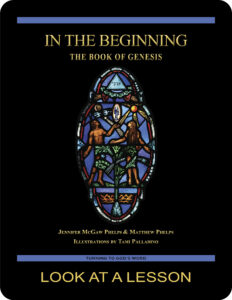sin
 The Gospel According to John 8:1–11 (NABRE) highlights sin and consequence in the account of the woman taken in adultery. The Jewish leaders have found a sinful woman whom they are using as a trap for Jesus. He can either endorse carrying out the law and get in trouble with the Romans or go against Mosaic law and lose credibility. At issue is how Jesus will approach handling sin.
The Gospel According to John 8:1–11 (NABRE) highlights sin and consequence in the account of the woman taken in adultery. The Jewish leaders have found a sinful woman whom they are using as a trap for Jesus. He can either endorse carrying out the law and get in trouble with the Romans or go against Mosaic law and lose credibility. At issue is how Jesus will approach handling sin.
The language here shows some of the keys to Jesus’ response. For the Jews, sin was a legal act, a violation of law that required punishment. The Greek word ἁμαρτάνω (hamartano), however, means “I miss the mark.” At its root, this concept refers to an arrow or thrown spear missing its target. In a broader sense, the concept refers to any failure to fulfill a purpose or intention and ultimately also refers to doing wrong or erring. It is not a legal failure so much as a failed execution.
By letting the woman go and urging her to do better in the future, Jesus shifts the conversation of sin away from punishment and toward learning to better carry out the task of living well. The Christian life is something that requires perseverance and practice, and Jesus is here not to judge us when we fail but to help us to try again and to learn to do better.
related topics: conscience; repentance; salvation
you also may like our study of the book of Genesis
 The first seven lessons of In the Beginning: The Book of Genesis, a 28-lesson Catholic Bible study with an imprimatur, provide an in-depth look at the very earliest biblical history—including the two accounts of Creation, events surrounding the Fall of Adam and Eve, the relationship between Cain and Abel, and the baptismal foreshadowing present in the account of Noah and the Flood. Remaining lessons look at lives of the patriarchs Abraham, Isaac, Jacob, and Joseph. Click on the book’s cover to view a sample lesson.
The first seven lessons of In the Beginning: The Book of Genesis, a 28-lesson Catholic Bible study with an imprimatur, provide an in-depth look at the very earliest biblical history—including the two accounts of Creation, events surrounding the Fall of Adam and Eve, the relationship between Cain and Abel, and the baptismal foreshadowing present in the account of Noah and the Flood. Remaining lessons look at lives of the patriarchs Abraham, Isaac, Jacob, and Joseph. Click on the book’s cover to view a sample lesson.
 Click on the picture of the statue of Moses with horns (above) to learn more about Lost in Translation. A new entry is archived each Monday. Contact us to receive Lost in Translation by email every week. You may use any of the contact links on our website to ask Matthew a question.
Click on the picture of the statue of Moses with horns (above) to learn more about Lost in Translation. A new entry is archived each Monday. Contact us to receive Lost in Translation by email every week. You may use any of the contact links on our website to ask Matthew a question.
